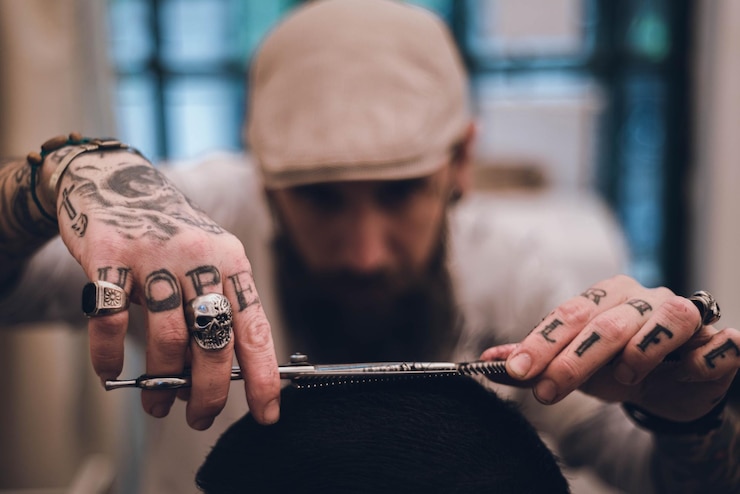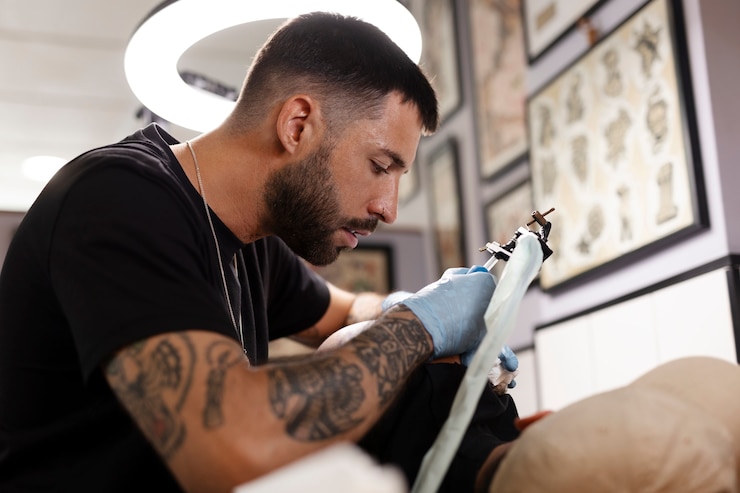
Tattoos are an art form, a personal statement, and sometimes a deeply meaningful expression of identity. Among the various tattoo styles and designs, Hebrew tattoos have become a popular choice for individuals seeking something unique, spiritual, or culturally significant. If you’re considering getting a Hebrew tattoo on your arm, particularly something as specific as קולין ברייס, this article will guide you through the associated costs, factors influencing the price, and what you need to know before sitting down in the tattoo artist’s chair.
Understanding Hebrew Tattoos: What Makes Them Special?
Hebrew tattoos hold a unique appeal due to the language’s ancient origins, cultural depth, and spiritual significance. Many people choose Hebrew phrases or names to reflect their religious beliefs, honor their heritage, or convey a message of inner strength and resilience.
When it comes to designing a Hebrew tattoo, accuracy is paramount. A slight mistake in translation or calligraphy can alter the meaning significantly. For example, if you want to tattoo קולין ברייס, you must ensure the Hebrew script is correct, as misspelled names or phrases can diminish the tattoo’s significance. It’s also crucial to collaborate with a tattoo artist experienced in Hebrew designs to ensure the script’s style aligns with your vision.
Beyond meaning, Hebrew tattoos are admired for their aesthetic value. The flowing script, with its unique characters, makes a visually striking statement. This timeless allure adds to the cost of getting a Hebrew tattoo, as specialized artists often charge more for designs requiring precision and cultural understanding.
How Much Does a Hebrew Tattoo Cost on the Arm?

The price of a tattoo, whether in Hebrew or any other language, depends on several factors. For a name or phrase like קולין ברייס, here’s a breakdown of the potential costs:
- Tattoo Size: Smaller tattoos (1-2 inches) may cost around $50-$100, but larger or more detailed designs (4-6 inches) can cost $200-$500. The arm is a popular location due to its visibility and ability to accommodate various sizes.
- Tattoo Artist Expertise: Artists with extensive experience in Hebrew script often charge a premium. Hourly rates range from $100-$300, depending on their reputation and skill level.
- Location of the Studio: Tattoo prices vary by city and country. Studios in metropolitan areas or cultural hubs typically charge more than those in smaller towns.
- Complexity of the Design: Hebrew tattoos require attention to detail. Adding decorative elements, such as calligraphic flourishes or shading, can increase the cost.
If you’re considering a name like קולין ברייס, the design might lean toward the simpler side, reducing the price. However, always budget for high-quality work to ensure the tattoo’s accuracy and longevity.
Choosing the Right Tattoo Artist for Hebrew Designs
Selecting the right tattoo artist is critical for a satisfactory result. Not every tattoo artist is proficient in working with Hebrew script, and mistakes can lead to embarrassing errors. Here are some tips for finding the right artist:
- Portfolio Review: Look for artists who have experience with Hebrew or other intricate script tattoos. Review their portfolios for examples of similar work.
- Consultations: Schedule a consultation to discuss your design. Share the Hebrew text, such as קולין ברייס, and assess their understanding and enthusiasm for the project.
- Reputation and Reviews: Research online reviews or ask for recommendations from friends who have Hebrew tattoos. Positive feedback and a strong reputation are indicators of reliability.
- Sanitation and Professionalism: Ensure the studio follows strict hygiene standards to minimize health risks. A professional studio is always worth the extra cost.
Remember, a tattoo is a lifelong commitment, so never compromise on quality for the sake of saving money.
The Process of Getting a Hebrew Tattoo on Your Arm
The tattooing process involves several steps, each requiring your involvement and preparation. Here’s what to expect:
- Design Finalization: Once you’ve chosen the text, such as קולין ברייס, collaborate with your artist to finalize the design. Consider the font style, size, and placement on your arm.
- Stenciling: Before tattooing, the artist will create a stencil of the design and position it on your arm to ensure it aligns with your expectations.
- Tattooing: The actual tattooing process can take anywhere from 30 minutes to several hours, depending on the size and complexity of the design.
- Aftercare Instructions: Proper aftercare is essential to ensure your tattoo heals well. Follow your artist’s advice on cleaning, moisturizing, and avoiding activities that could damage the tattoo.
Patience and preparation are key to achieving a beautiful, lasting Hebrew tattoo.
Tips for Maintaining Your Hebrew Tattoo

Caring for your tattoo is just as important as the tattooing process itself. Poor aftercare can lead to fading, infections, or scarring, diminishing the tattoo’s appearance. Here are some maintenance tips:
- Avoid Sun Exposure: Direct sunlight can cause tattoos to fade. Use sunscreen with high SPF to protect your tattoo.
- Keep It Moisturized: Apply a fragrance-free, tattoo-specific moisturizer to keep the skin hydrated.
- Avoid Scratching: Healing tattoos may itch, but scratching can damage the design. Use a gentle patting motion if the itching becomes unbearable.
- Regular Touch-Ups: Over time, tattoos may fade. Schedule touch-ups with your artist to maintain the design’s sharpness.
Following these steps ensures your Hebrew tattoo remains vibrant and meaningful for years to come.
FAQs
Q1: How do I ensure my Hebrew tattoo is accurately translated?
A1: Work with a professional translator or someone fluent in Hebrew. Avoid relying solely on online translation tools, as they may not capture the nuances of the language.
Q2: Is it more expensive to get a tattoo in Hebrew compared to English?
A2: Yes, Hebrew tattoos may cost more due to the complexity of the script and the need for precision. Experienced artists who specialize in such designs typically charge higher rates.
Q3: Can I remove a Hebrew tattoo if I change my mind?
A3: Tattoo removal is possible through laser treatment, but it can be costly and time-consuming. Consider the decision carefully before committing to a tattoo.
Q4: Are Hebrew tattoos culturally appropriate?
A4: It depends on your personal connection to the language or culture. If you’re unsure, consult someone knowledgeable in Hebrew or Jewish culture to ensure your tattoo is respectful.
Conclusion
A Hebrew tattoo on your arm, such as קולין ברייס, is more than just body art—it’s a personal statement with cultural and linguistic significance. While the price can vary depending on factors like design complexity and artist expertise, the investment is worth it for a high-quality, meaningful tattoo. By researching, choosing a skilled artist, and following proper aftercare, you can ensure your tattoo remains a source of pride and beauty for years to come.